TV students’ work catches FBI attention
Police question ‘Newscene’ reporters after filming in front of building
May 8, 2015
Three San Diego City College student journalists were questioned by authorities before and after capturing video in front of San Diego’s FBI building on April 7 for a report on sex trafficking.
Abtin Mohammadi, Daniela Porter and a third student who doesn’t want to be identified were recording a stand-up report for “Newscene,” City College’s student broadcast news show, about how the FBI named San Diego the eighth most popular location for sex trafficking crimes to occur.
According to Mohammadi, one security guard said it was fine to capture footage in front of the building.
However, while the students were setting up equipment, another officer approached the students asking for their IDs, taking down their information and proceeding to give the three a half-hour time limit to shoot. After about 20 minutes, the same officer came out and told the students to wrap up filming.
Some time after filming in front of the FBI building, Porter and Mohammadi said that the third student involved told them that a detective from the San Diego Joint Terrorism Task Force came to her home while she wasn’t there with photos of them filming and wanted the footage that the three of them shot to be handed over.
“The (third student) called me and what she told me was that she wasn’t home; the detective went to her house when her mom was home …” explained Mohammadi.
Mohammadi said that the third student told him that the detective showed up at her house while she was not home. The detective told her mother that he heard of some suspicious filming at the FBI building and wanted to know who was involved with the recording and wanted the footage from the day they were filming.
Mohammadi also said that the third student said the detective’s name was Dan Vile.
In an email to “Newscene” adviser Laura Castaneda, provided by the San Diego Police Department media relations office, Vile said he wanted to verify who the students were and to make it clear that it was an assessment — not an investigation. Vile also verified that the students did speak with security personnel but did not state why they wanted to film in front of the FBI building and after filming in their first location moved to another location where it looked like the students were filming cars moving in and out of the building.
Vile wrote that while he understands that police visits can be uncomfortable, he said that it’s apart of the job of being an officer and maintained the visit with the third student’s mother was respectful. Vile also confirmed that the third student gave him the information he was looking for. Vile said that post Sept. 11, police have to be “as thorough as possible with our inquires.”
“To be clear, no one is questioning their rights to photograph or film the building. Nor is anyone saying what they did was illegal in any way,” Vile wrote. “However, it is not only appropriate, but also a necessity, for us to simply ask, ‘why.’ Their answer, or even lack of one, is their business.”
The FBI did not respond for comment at press time.
After the April 7 incident, Porter said that Mohammadi told her that he would take care of things and talk to Vile. However, on April 29, Porter received news from the third student involved that she needed to contact the detective because he had warrants out for the students involved.
“I found out from the third student involved what the message was, (she said) ‘Daniela he said he has a warrant on you guys and you must call him back’… then it was like wow, I didn’t know that … I didn’t like that at all,” Porter said.
Mohammadi said he called Vile and explained everything regarding the situation but that it seemed like the detective didn’t know exactly what was going on and asked for all of the information starting from the beginning.
After Mohammadi answered all the questions again, he said, the detective told him that everything was OK and that he just wanted to know because of “global terrorist things and suspicious activity out there.”
In an email statement, “Newscene” adviser Castaneda said, “I wish I could tell you more, but I’ve been asked by Dean Trudy Gerald to forward all law enforcement and media inquiries to her.”
The students have consulted with Frank D. LoMonte of the Student Press Law Center, a nonprofit organization that specializes in helping and educating high school and college journalists about the “rights and responsibilities embodied in the First Amendment and supporting the student news media in their struggle to cover important issues free form censorship,” according to its website.
“There’s no problem with asking why people are outside the building filming. That’s a perfectly fine security precaution,” LoMonte said via email. “But where the police very clearly crossed the line into harassment and intimidation was in going to a journalist’s house and asking to be given a copy of the film. That’s indefensible and it violated the journalist’s First Amendment rights, without question.”
“There were many more effective ways to verify whether the student was genuinely on a journalistic assignment outside the FBI building, but the police purposefully picked the most frightening way to send a message to the journalist: we know where you live. If all they cared about was verifying the journalist’s employment, they could have picked up the phone and contacted the professor in a non-threatening way, but they chose not to,” LoMonte continued.
“It’s scary that someone wants to talk to you since we didn’t do anything. … We have the rights of the First Amendment to record outside in a public space and any citizen has the same right …” Porter said.
According to Mohammadi and Porter, before the students started filming in front of the building on April 7, Mohammadi went to a security guard, showed him his student ID and explained who the students were, where they were from and why they were at the FBI building in Mira Mesa.
After talking with the security guard, the guard gave the students directions on where they could park and gave the green light for the students to film as long as they didn’t show the building or images of the FBI. While preparing to set up to film the stand-up, another officer came out and started asking questions.
”I went back to the car … to basically get ready, then an officer came out, out of his office and he asked us, ‘Where you guys come from?’” Mohammadi said. ”We told him we’re from City College, the local broadcasting station, then he asked us, ‘Are you guys students?’ and I said, ‘Yes, we are from City College and we’re doing a report …’” Mohammadi said.
The officer then asked the three students for their California IDs and, according to Porter and Mohammadi, wrote all three of their information in a log in order to verify that they were students and proceeded to give them half an hour to film.
“He asked us for a California ID … and I didn’t hesitate; I just bring it out and said, ‘Here’s my ID,’ (Porter) showed it to him and so did the other girl. So, he just wrote information …” Mohammadi explained.
Mohammadi said that the officer just wanted to verify that they were who they said they were and after he took down their information the officer told him that they could only film for a half-an-hour.
“We wanted to get the shot because it was almost sunset, so we didn’t have much time for the light, so we were like, ‘OK we want to do this fast’ … And that was when they asked us so many questions and we just really wanted to record because we were outside … This is a public place where we can record and it’s just, you know, a stand-up, and then you know they got very, um, intimidating,” Porter said.
“He didn’t tell us anything about what he was gonna do with (the information), he just wants to verify that ‘you’re a student as you said, we just want to see if you have valid everything,’” Mohammadi said.
After about 20 minutes of filming, the officer came out and told the students that they had to leave without any explanation.
“We explained to him exactly what we were going to do. … We’ll be on the streets, I’m gonna shoot (Porter) and (the third student) just gonna do a little piece, but then he came again despite knowing all the information and kind of rushed us off, very nervously saying that ‘you have to leave, you have to wrap up right now,’” Mohammadi said.
Mohammadi explained that the three students wrapped up quickly, packed up their equipment and left.
“There is nothing wrong with filming the exterior of federal buildings and the Department of Homeland Security and Federal Protective Services have put out memos instructing federal agents not to overreact if they see people peacefully and non-disruptively filming from a public space, as these student journalists were. The police department owes these students an apology and a promise of better training for its officers,” LoMonte said.
LoMonte also explained in his email statement that it’s routine for journalists to film in front of federal and government buildings and cites the coverage of the U.S. Supreme Court as an example.
San Diego City College Public Information Officer Heidi Bunkowske said via email, “I have not spoken with the students or the FBI so I cannot comment regarding filming activities.”


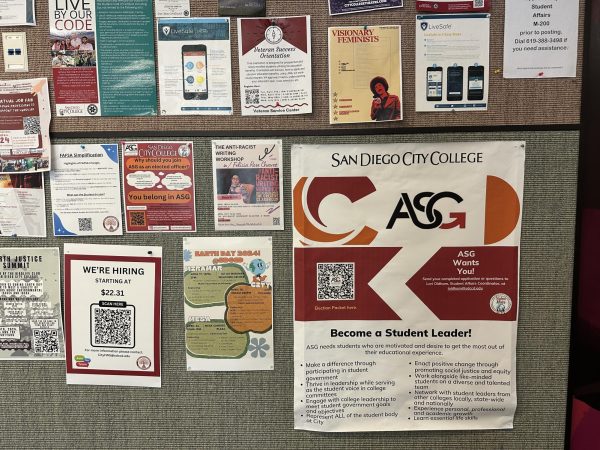
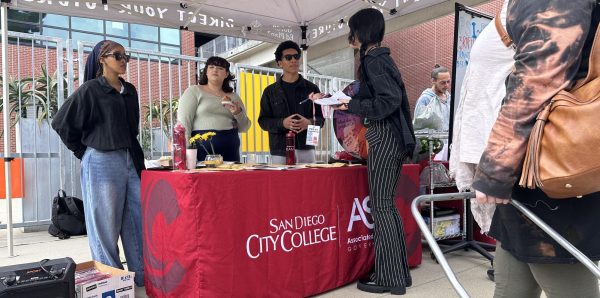
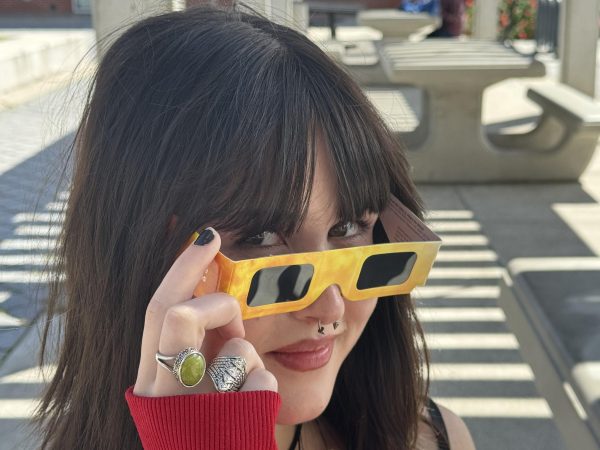
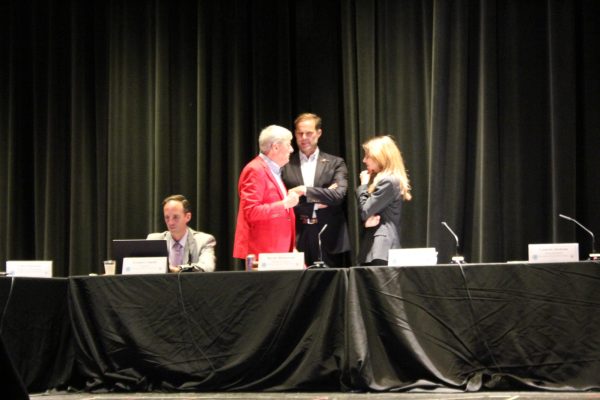
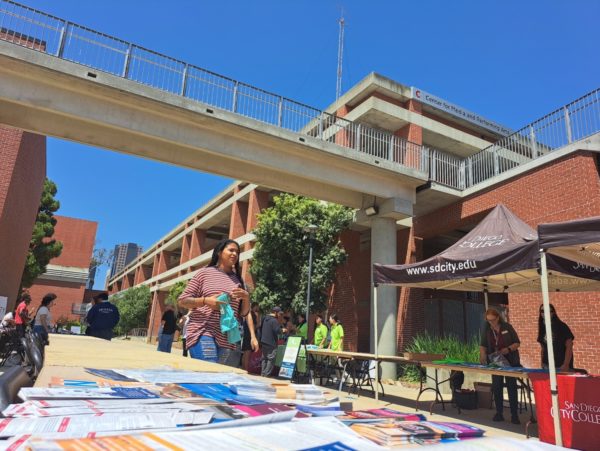
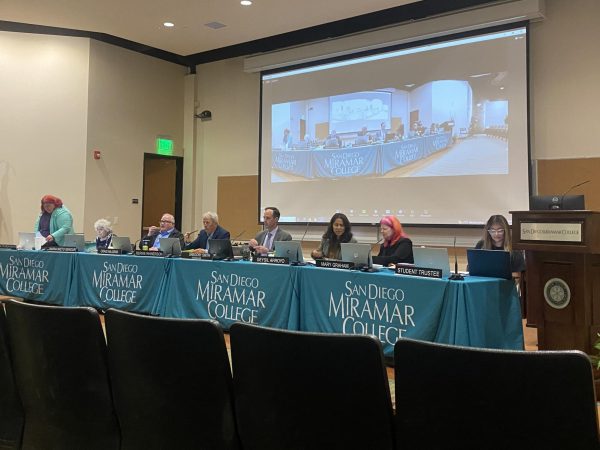
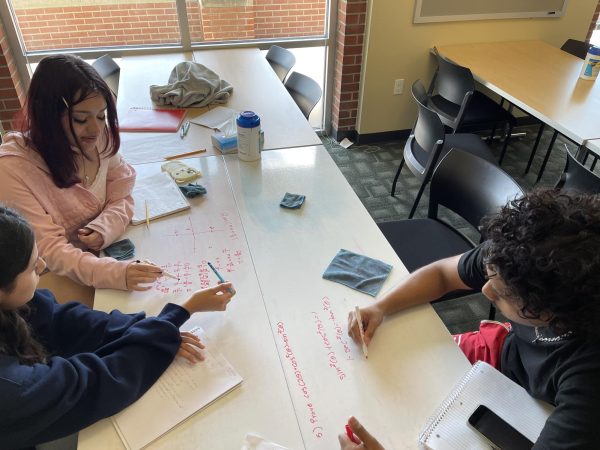
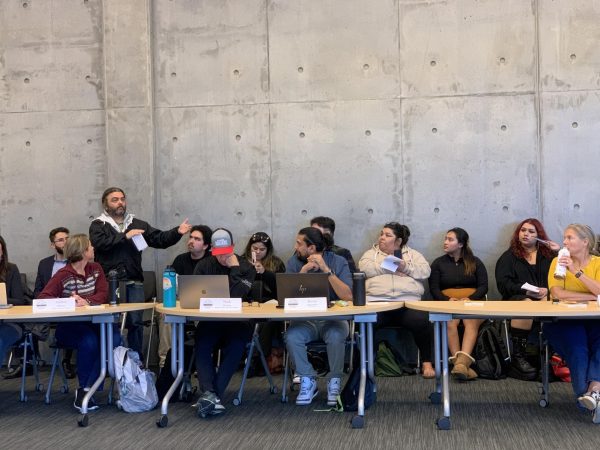
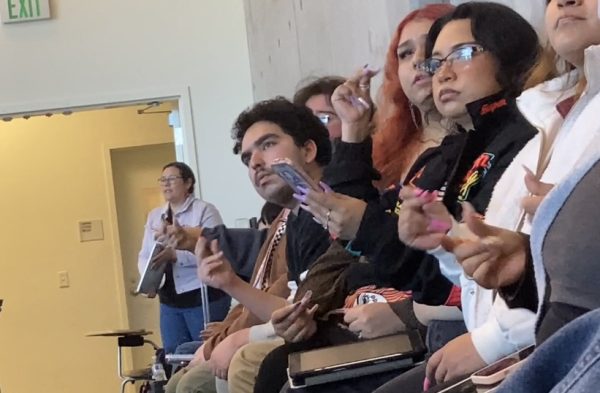
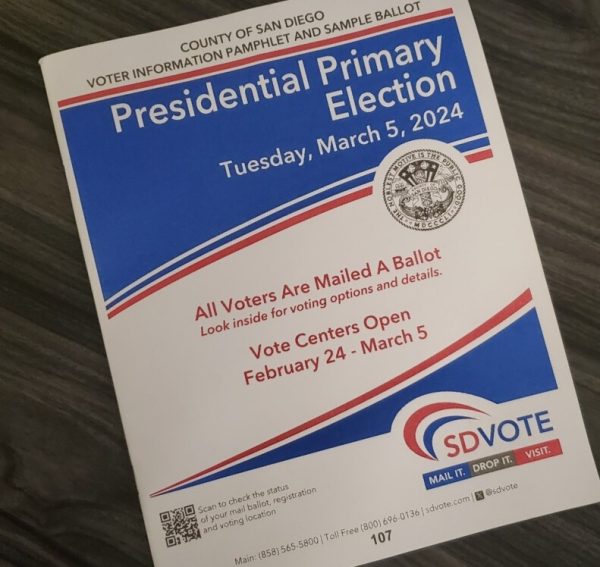

Interested Reader • May 30, 2015 at 4:55 pm
Gegord: These students involved are —-not— City Times newspaper students, but students in the TV news program, which is similar but run separately. They don’t produce each other’s content. So they are not covering themselves.
Gegord • May 29, 2015 at 3:50 pm
This is really catching the news: http://www.utsandiego.com/news/2015/may/28/fbi-student-journalists-city-college-video-visit/?google_editors_picks=true#comments-module
http://www.10news.com/news/fbi-response-to-san-diego-city-college-journalists-visit-questioned
http://spjsandiego.org/
Society of Professional Journalists! Big guns there, but if the SDCC photogs got a “scoop,” is it a real scoop when it’s created by the reporters themselves? They’ve found a lot of publicity and controversy, but would it have happened if it had not been for they themselves?
Where does a Pulitzer come from? A reporter’s diligence in covering an event or story, or his involvement with it himself?
What’s that thing about Castenada and Bergum got to do with this? I understand there should have been an investigation about that, too (especially Shaikh; that corruption and cowardice will long tarnish San Diego’s government and legacy), but how and why did that lead into this recent confrontation? Must be Mayor Golding’s long arm reaching through the decades and decimating San Diegans like she’s still here. Which she’s not, of course. Thankfully!
But now Mayor Falcouner…I’m certain there’s a Pulitzer here.
Gerry Nance • May 28, 2015 at 9:51 pm
PHOTOGRAPHER’S RIGHTS vs. YOUR PRIVACY
1. Photographers have a right to photograph public activities that occur in a public space, or which are photographed from a public space. This includes, but is not limited to, sidewalks, streets, public transportation systems, plazas, parks, beaches and other places that the public is allowed to be.
2. Attempts to prevent this photographer from exercising these rights may subject you to criminal penalties for harassment and coercion.
3. While you do have a right to privacy, you surrendered some expectations of privacy by coming here.
4. You do have certain Fourth Amendment protections, but by your presence here you have placed yourself under my First Amendment Free Press protected right to record, photograph and publish all that I see and hear from here.
Matthew Cline • May 28, 2015 at 10:41 am
“it was an assessment — not an investigation”
What?
Marg • May 19, 2015 at 5:54 pm
Steve Castaneda’s still catching the news, isn’t he: https://castanedacracked.wordpress.com/
He’s got a whole website now. That’s interesting about Willie. I wonder where he got all that evidence room dope?
Nawt Josse • May 9, 2015 at 6:36 pm
And San Diego isn’t the best place to get on methadone because look at what happened to this woman: http://articles.latimes.com/1994-01-13/news/mn-11398_1_san-diego-police-department
Why, that’s terrible! I don’t like what the San Diego Democrat Party people do to people on methadon in San Diego, I think it’s bad. They had a carpenters union (Local 2020) that was really bad, but I don’t know if it had any Castanedas in it but what they did to that lady wasn’t too nice.
I don’t know what methadone has to do with filming people by federal buildings except I know that since the Web started more girls have cameras now so that may have had something to do with it. But just because someone’s on methadone (which is a legally prescribed drug) doesn’t mean that the FBI needs to get involved with anything. Just because a Castaneda who was employed by an FBI person like Mr. Bergum was on methadone doesn’t mean that anything bad should happen to anyone going to CLERB even if the other Castaneda was on CLERB even though he used to be a police officer. I don’t know if that got made into Del Mundo records music, but maybe these girls were listening to rap music while they were filming and that got the FBI officers worried.
Was Steve Castaneda being on CLERB like Abdussattur Shaikh being on the Citizens Review Board on Police Practices (CRBPP) after 9/11? It’s the same time frame, and both were city and county workers. What would methadone have to do with any of that? I don’t know, but it just isn’t right what happened to that girl even if she did look like a Russian. I mean, the Cold War’s over and everything! But then they filed a wrongful death suit against the city for the woman’s child and lost which, really, is impossible because the woman was a real innocent bystander! She wasn’t even involved or enrolled at City College or anything, and I don’t think she had anythig to do with enrollment there. And she wasn’t even a “long time” downtown resident like the article says, she wasn’t on disability or one of Barny’s People that Mayor Golding got rid of. Why would the FBI do anything about that? She wasn’t in any rehab.
I’ve never picked on anyone on methadone, and lots of girls have cameras now. You see it all over the Web! If they were just taking selfies then it probably would have been OK, but with the Castanedas some people say you just never know. I had complaints before the CRBPP, too, and those got messed with even though there wasn’t any Castaneda on it at all!
I remember I didn’t like the cover of an algebra text I had at City for an algebra 100 class. That text had a lot of mistakes in it, it was hard to use. The girl on the cover didn’t look right, either, but that doesn’t mean I should call the FBI, does it? Of course not, we shouldn’t over react about things. Right?
Mayor Golding got into trouble back in those days. Did this have anything to do with the new mayor, the one who took over from Mayor Filner? Well, I don’t know.
Nawt Josse • May 9, 2015 at 6:17 pm
I rented a house by City College that was owned by an ex-FBI agent (the Bergums of San Diego and Del Mundo records!) and the landlord was Willie Castaneda whose nephew is Steve Castaneda who gained fame in Chula Vista for that corruption thing a decade ago. Before that he was on the Citizens Law Enforcement Review Board (CLERB), which was always a questionable position as he used to be a police officer.
When I would go for my CLERB hearings I’d have my cars vandalized and some Mexicans would wait outside my house to jump on me! I couldn’t get any help because Mr. Bergum didn’t want any scandal wtih CLERB. Now, I don’t know if these Castanedas are related to the City College Castaneda lady, it’s a common name. But I used to see Willie at the Home Avenue Clinic getting his methadone doses, that was fun. He’d say he was just taking one of his friends there, but I figured that out!
Willie passed away a number of years ago, but I remember he had the thickest tracks on his arms that I’d ever seen. He wore long sleeved shirts a lot. But my guess is he got a lot of his dope right out of the evidence room! No guess who would have helped him.
But then I’d get jobs and get in auto accidents at work that weren’t my fault! And I worked by that FBI building in Sorrento Valley and the people I was driving for would have me stop in front of the FBI building before it was done being built and I didn’t know what it was and the security guards would yell at us and everything! I don’t know why they did that, but then I got in wrecks that weren’t my fault and my back hurts!
I wonder if that’s the same Castanedas? I don’t like Del Mundo records that much.
curtis corlew • May 8, 2015 at 11:04 pm
This is as chilling as anything else in the story….
In an email statement, “Newscene” adviser Castaneda said, “I wish I could tell you more, but I’ve been asked by Dean Trudy Gerald to forward all law enforcement and media inquiries to her.”
Yikes.